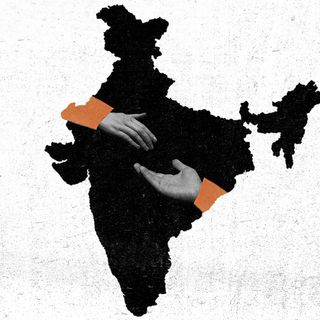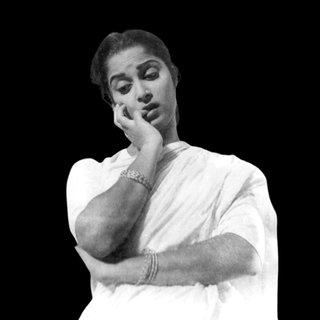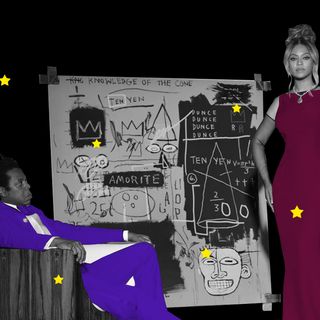
The Cultural Fall of the Indian Game Show
From once representing the aspirations of the Indian middle-class to now losing cultural relevance, what went wrong with the Indian game show?

The opening of “Slumdog Millionaire” sees Jamal, an 18-year-old from a slum in Mumbai, making the play for Rs. 20 million. “What is the name of the third musketeer?” was his prize-winning question. He won, but his answer was inconsequential. The movie celebrated a “slumdog” millionaire, a man who won despite the odds stacked against him.
What was also consequential was the sensibility the movie mirrored, familiar to any Indian household. For Vedant, 24, shows like KBC (Kaun Banega Crorepati) were a cultural staple. 9 p.m. and the family would gather at the dinner table, serving dinner with a side of trivia.
The success of the Indian game show is no mystery. It symbolized the upward mobility of the middle-class, offering an almost attainable escape. Over the last decade, although these aspirations have remained similarin nature, the landscape of game shows has transformed. Evolving cultural sensibilities pull the strings in deciding the kind of knowledge shared — and what value they hold for most Indians.
***
At their debut into Indian television in the ‘80s and the ‘90s, game shows came with the promise of trivia, knowledge, and light entertainment. Borrowed from Western counterparts like “Who Wants To Be a Millionaire” or “Jeopardy!” for an Indian audience, these shows marked a period that came to be known as the “time of television” in India. An ideological dynamic was forged between the television, the game, and the Indian middle-class viewer.
The game show represented middle-class lifestyles and aspirations, and endorsed consumerist desires of winning, researcher Arvind Rajagopal noted in a paper. Even in the ‘40s and ‘50s when the game show first emerged in the West, the “get-rich-quick” scheme was a convenient departure from tedious manual labor. They fit into a budding era of consumerism.
The aspirational narratives of victory and failure and a fascination with rags-to-riches stories for the middle-class Indian viewer are what kept them hooked to the televised game show. A contestant’s personal story or their family’s elicited a connection. “What doesn’t change is that game shows give ordinary people a shot at fame, with the possibility of landing some quick cash,” says Ruchi Kher Jaggi, director at the Symbiosis Institute of Media and Communications.
Related on The Swaddle:
There Is No Such Thing as Achievement Through Pure Merit
“A lot of times, it’s just vicarious pleasure, that somebody’s getting it. It’s just so gratifying to see somebody succeeding,” Jaggi notes. There’s an element of catharsis in this cultural exchange.
In Greek tragedies, the interest in watching characters and deriving catharsis was triggered by two emotions: fear and pity. Philosopher Aristotle suggested that both emotions help an audience identify with the “tragic hero’s suffering.” The participant sitting on the venerated hot seat takes on the tragic protagonist’s role in a game show setting. A KBC participant, Satinder Singh, ran a small furnishings shop on the foothills of the Himalayas. His entire town shut shop, deserted roads et al. to watch him win Rs 20 crores on TV.
In the early 2000s, when the internet wasn’t as accessible, the television was a localized format to gain knowledge while collectively viewing someone’s rise — or fall. A memory faithfully anchored in the Indian consciousness is that of Derek O’Brien, who hosted the “Bournvita Quiz Contest,” punctually walking through sliding doors at 11 a.m. every morning, armed with general-knowledge questions for confident (and sometimes, nervous) school kids.
The overreliance on formula, the kind of stories told, choice of participants, selection procedures, the emotions on display, questions, even the banter — all work in a deliberate fashion to cement their popularity and adoration. There were apps and spinoffs; the Hindi-origin KBC inspired multiple translations in languages like Tamil and Kannada. Other shows like the Tamil “Connexion” and the Telugu “Sixth Sense” captured regional audiences.
***
History is only as fascinating as how it changes. Over the last decade, the legacy of the game show has shifted in what they do for people now.
Vedant, for one, no longer watches any game shows. “These shows just lost their charm.” People may still watch them for entertainment or out of boredom, but the trivia itself is less about knowledge and more about gossip and cheap entertainment. Sample this question from KBC: “Who has Alia Bhatt not kissed yet from her roster of co-stars?”
What has changed, perhaps, is the intent. A participant who “desperately” needs money for a family or medical emergency will make for a “better” story on television than someone who hasn’t endured similar hurdles. The shows now bank on tragedy porn, fetishizing the suffering of participants. The popularity banks on genuine content being disregarded for the sensational value a participant’s misfortune offers.
But this too doesn’t work to offer something unique to viewers. Today, the internet abounds with aspirational stories of people like “us,” for immediate gratification. The meaning derived from watching Anupa Das, a Karnataka-based teacher, sit on the coveted hot seat to win money for her mother’s operation, falls short.
Naturally, the shift from television to streaming and OTT also altered how we watch them. Watching these shows on OTT is often an isolated experience; certainly not the same as viewing something on TV as a family.
Related on The Swaddle:
Feminist TV Soaps Are Finally Finding a Foothold With Mass Audience
What made game shows work was the cultural offering they presented, the knowledge people got out of it. This is no longer relevant for two reasons: the idea of information is at odds with sensational content, and the trivia the shows end up curating amplifies culturally ingrained biases.
All this speaks to these shows’ inability to adequately adapt to the modern audience. A lot of them still utilize gags and motifs that are at best, obsolete, and at worst, problematic. “The most obvious one that comes to mind is the image of women whose only jobs were to look pretty next to the rewards of game shows,” says 23-year-old Ambar. Think “Khul Ja Sim Sim,” which had models standing next to cash prizes and new cars. A show called “Ladies V/s Gentlemen” literally pits men against women to peg “India’s opinion” on certain matters.
Another dimension to their popularity is how game shows tacitly become an exercise in nationalism-building. They pander to the masses, often setting the government’s agenda to amplify culturally ingrained biases. The many references to cricket, questions based on Hindu mythology (such as Ramayana or Mahabharata), those that celebrate the policies of the government, or the reductive banter about husband-wife relationships all stand as a testament to this.
An analysis of 50 episodes of KBC found multiple references to cricket, Bollywood, Indian mythology, or religion. Newer shows often pose questions about government schemes like Digital India or Covid19 policies as a way to amplify “national success.” The politicization of game shows, like other viewings on the reality TV spectrum, has grown with popularity.
The Indianization of the game show clearly highlights its patriarchal and nationalist roots. This overreliance on regressive ideas feels stale and outdated, even grates on constructive social sensibility.
***
The game show is but a teller of the cultural zeitgeist. As the traditional game show stumbles for meaning today, it makes room for other niche viewings to grow. Independent creators on YouTube or OTT platforms are eyeing to shape the next era of trivia entertainment. Think Tom Scott on YouTube and other niche subcultures.
The Indian game show faces an odd existential crisis: it is popular but culturally hollow. As journalist Matthew Velasco explains, “Since the TV genre’s popularization… game shows have provided a realistic glimpse into the ethos of a certain era…”
What is the ethos of this era, then? In this game of knowledge, nostalgia, and sensationalism, there may not be a clear winner.
Saumya Kalia is an Associate Editor at The Swaddle. Her journalism and writing explore issues of social justice, digital sub-cultures, media ecosystem, literature, and memory as they cut across socio-cultural periods. You can reach her at @Saumya_Kalia.
Related


Woe Is Me! “My Family Doesn’t Let Me Have Leisure Time. How Do I Get Some ‘Me Time’?”
